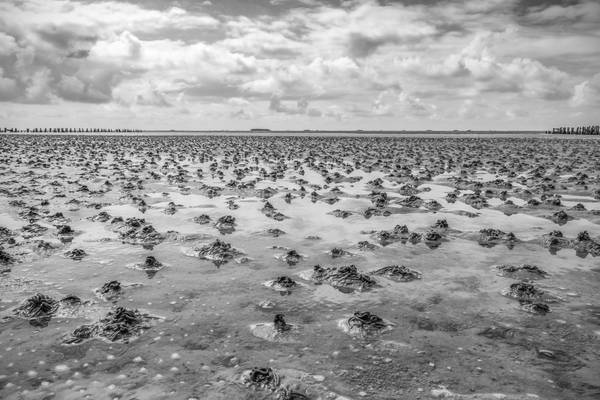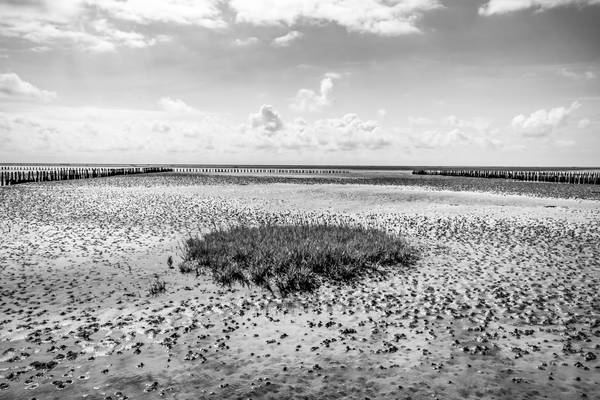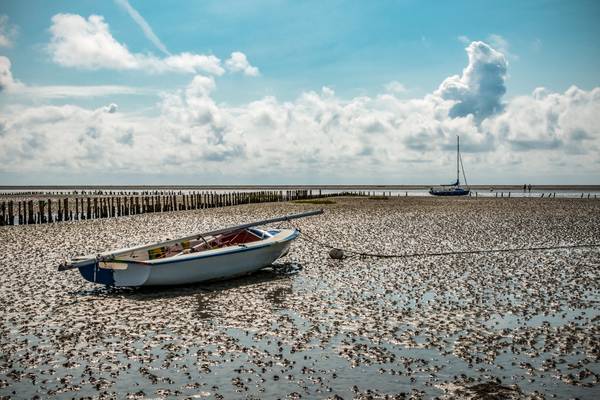
Mandø By

by Salvatore Petrantoni
Mandø is one of the Danish Wadden Sea islands off the southwest coast of Jutland, Denmark in the Wadden Sea, part of the North Sea. The island covers an area of 7.63 square kilometres (2.95 square miles) and had 40 inhabitants in January 2018.[1] The island is part of Esbjerg Municipality and is situated approximately 12 kilometres (7 miles) southwest of the ancient town of Ribe.
Mandø is barely accessible at high tide over an unpaved surface level causeway of about four kilometers in length that connects the island to the mainland. Extensive mudflats and tidal marshes encircle the island and provide breeding areas to multitudes of birds and other organisms.[2] In the past centuries a large earthen dike has been constructed around the perimeter of the island, although substantially set back from the shoreline. This artifice has allowed conventional farming in the form of grain growing and sheep grazing. Mandø is technically a hallig, although it is far from the ten German islands commonly described by that term. The name was formerly often spelled Manø.
Reference: en.wikipedia.org/wiki/Mand%C3%B8

by Salvatore Petrantoni
Minimal landmark of Mandø (Denmark)

by Salvatore Petrantoni
Mandø is one of the Danish Wadden Sea islands off the southwest coast of Jutland, Denmark in the Wadden Sea, part of the North Sea. The island covers an area of 7.63 square kilometres (2.95 square miles) and had 40 inhabitants in January 2018.[1] The island is part of Esbjerg Municipality and is situated approximately 12 kilometres (7 miles) southwest of the ancient town of Ribe.
Mandø is barely accessible at high tide over an unpaved surface level causeway of about four kilometers in length that connects the island to the mainland. Extensive mudflats and tidal marshes encircle the island and provide breeding areas to multitudes of birds and other organisms.[2] In the past centuries a large earthen dike has been constructed around the perimeter of the island, although substantially set back from the shoreline. This artifice has allowed conventional farming in the form of grain growing and sheep grazing. Mandø is technically a hallig, although it is far from the ten German islands commonly described by that term. The name was formerly often spelled Manø.
Reference: en.wikipedia.org/wiki/Mand%C3%B8
Thanks to all Phoide contributors to Mandø By!
Most notably Salvatore Petrantoni.